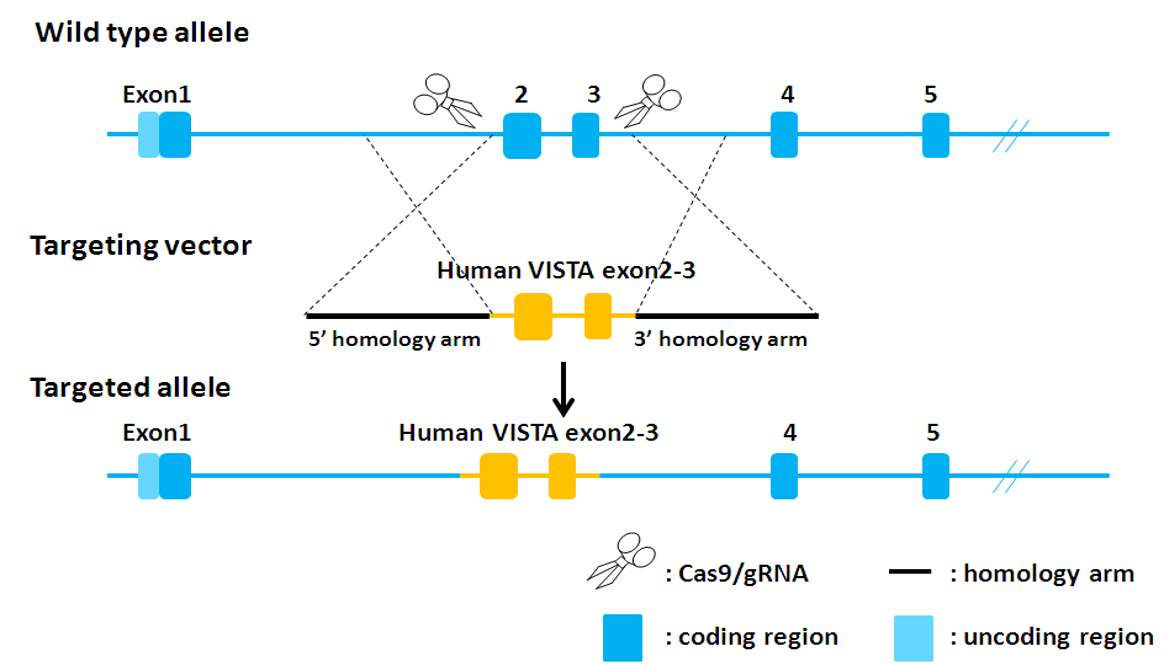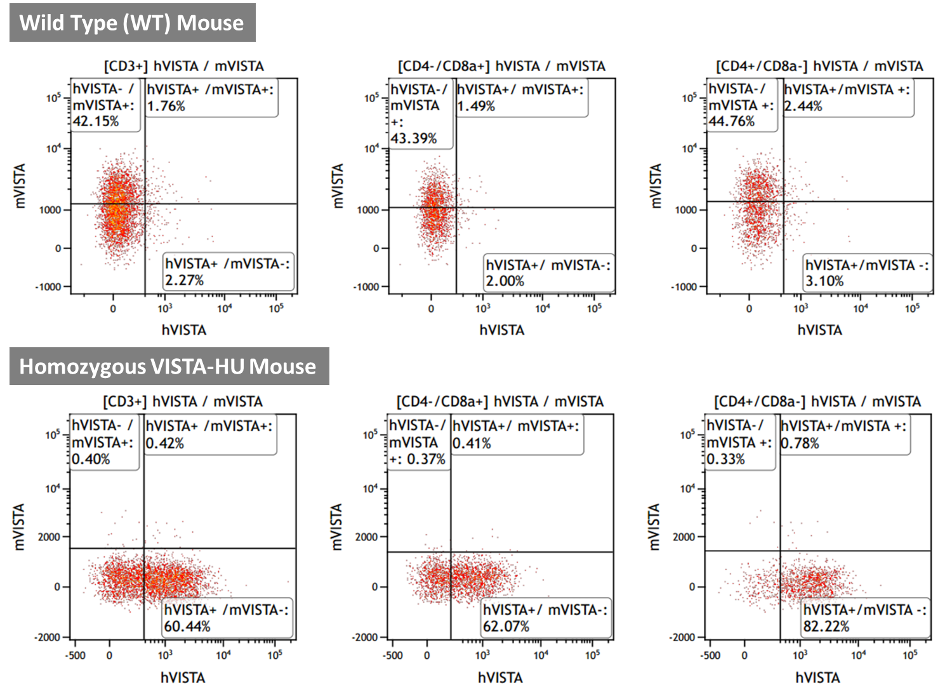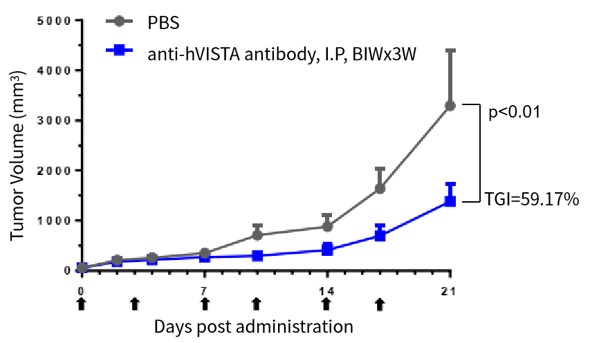VISTA is a type I immunoglobulin (Ig) membrane protein containing an Ig-V domain and is normally expressed in high levels on myeloid-derived cells and in to a smaller extent on tumor-infiltrating lymphocytes (TILs). Similar to PD-L1 and CTLA4, it functions as a negative immune checkpoint regulator and can potently suppress T cell activation when expressed on antigen-presenting cells (APCs) and may indirectly promote progression of cancer. Monoclonal antibody and other immunotherapies blocking VISTA have shown promising anti-cancer results in preclinical studies and early clinical trials. VISTA may also play a role in the development of T cell-mediated autoimmune disease.
The humanized VISTA (VISTA-HU) mouse model expresses a chimeric VISTA and was generated by knock-in of human counterparts of exons 2 and 3 of the human VSIR (VISTA) gene to replace exons 2 and 3 of the endogenous mouse Vsir gene (see figure 1 for knock-in strategy). This mouse model is ideal for efficacy testing of immunotherapy compounds and for cancer research and drug screening.
Validation of Humanized Mouse Model
Knock-in Strategy

Figure 1. Gene knock-in strategy to engineer a mouse model expressing a chimeric human-murine VISTA gene. Exons 2 and 3 of the endogenous mouse Vsir gene was replaced with human exons 2 and 3 of the VSIR (VISTA) gene.
VISTA Expression in Humanized Mouse Model

Figure 2. Detection of VISTA expression in peripheral blood cells of humanized VISTA mice.
The expression of human VISTA was detected by FACS. The results showed that the active expression of human VISTA can be detected in both activated CD4+ and CD8+ T lymphocytes collected from humanized VISTA mice.

Figure 3. In vivo validation of anti-tumor efficacy in a MC38 tumor-bearing model of humanized VISTA mice.
Humanized VISTA mice were inoculated with MC38 colon cancer cells, the animals were randomly assigned into a control group and a treatment group (n=6). The drug was administered on days 0, 3, 7, 10, 14, and 17 respectively. The antibody showed significant tumor inhibition at the recommended dose (TGI: tumor growth inhibition, p < 0.01). (Data in partnership with collaborators)



Reviews
There are no reviews yet.